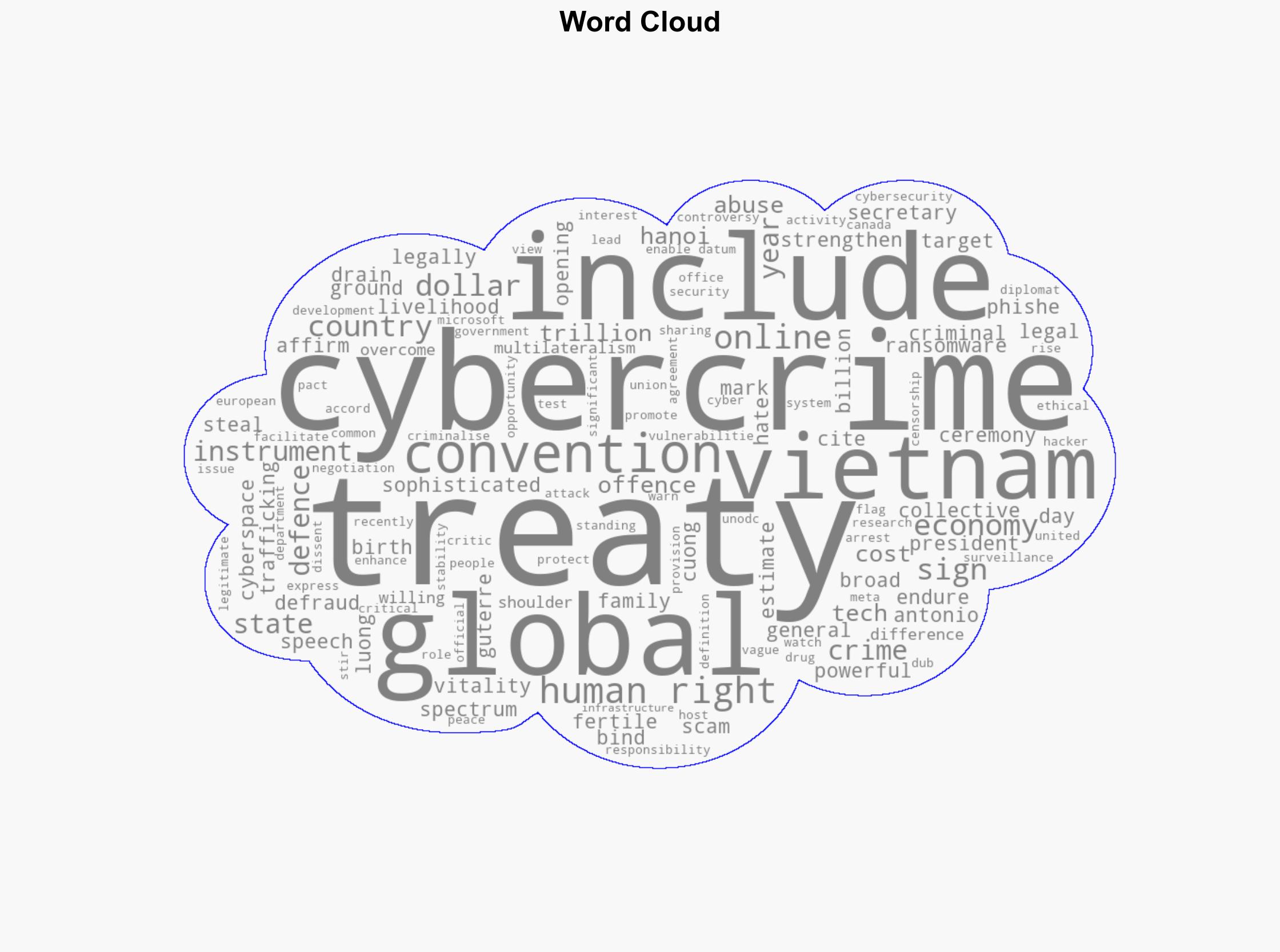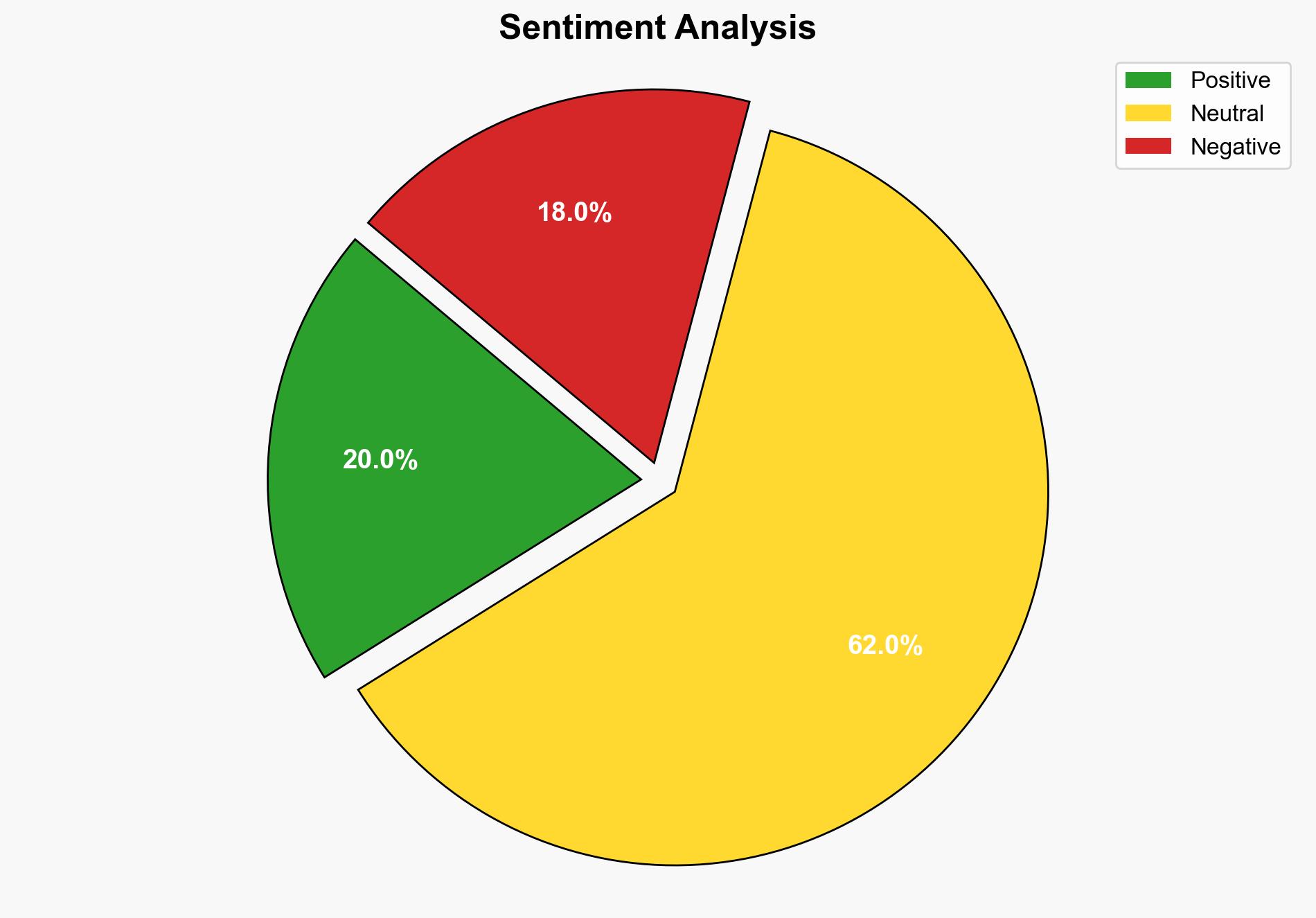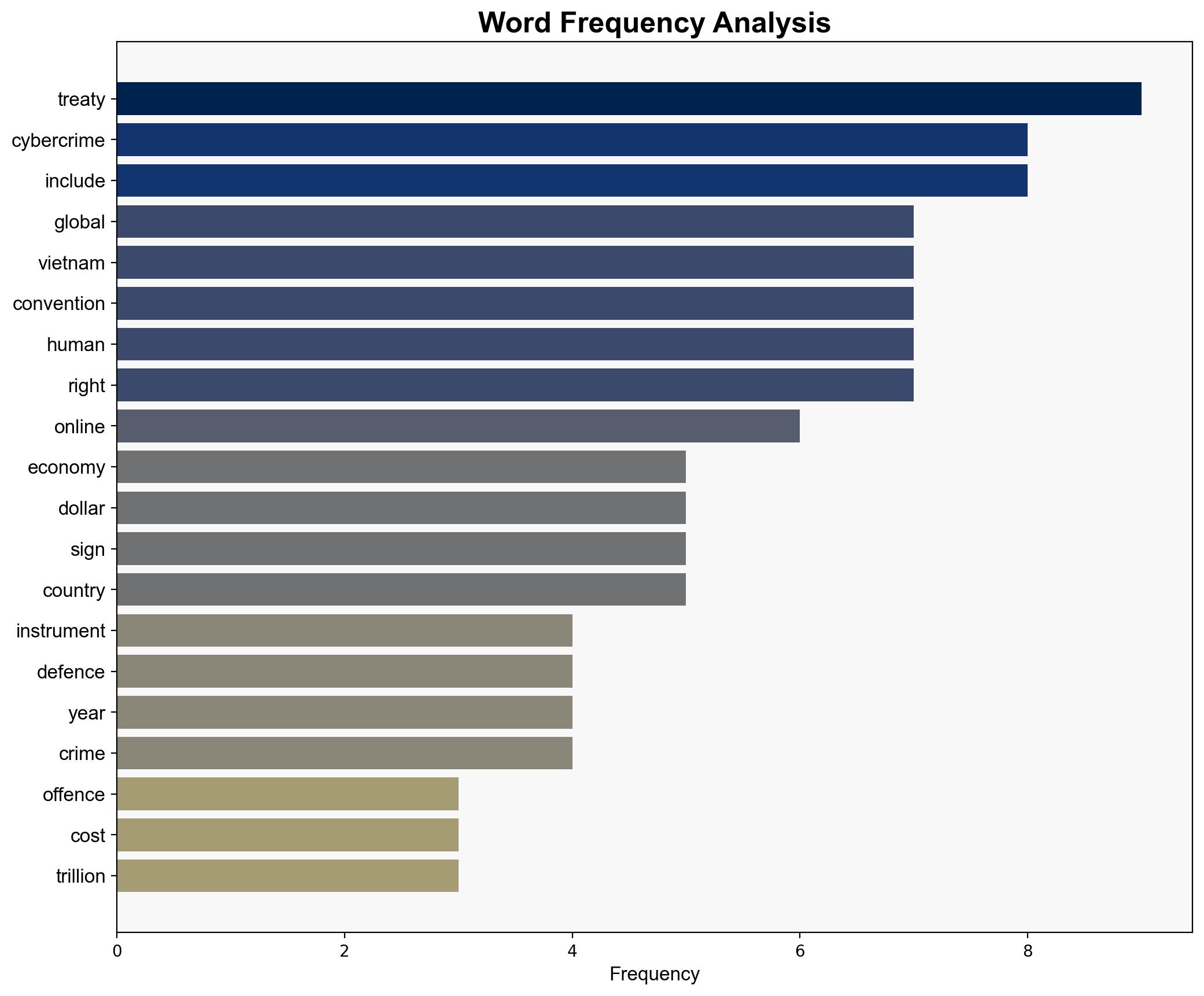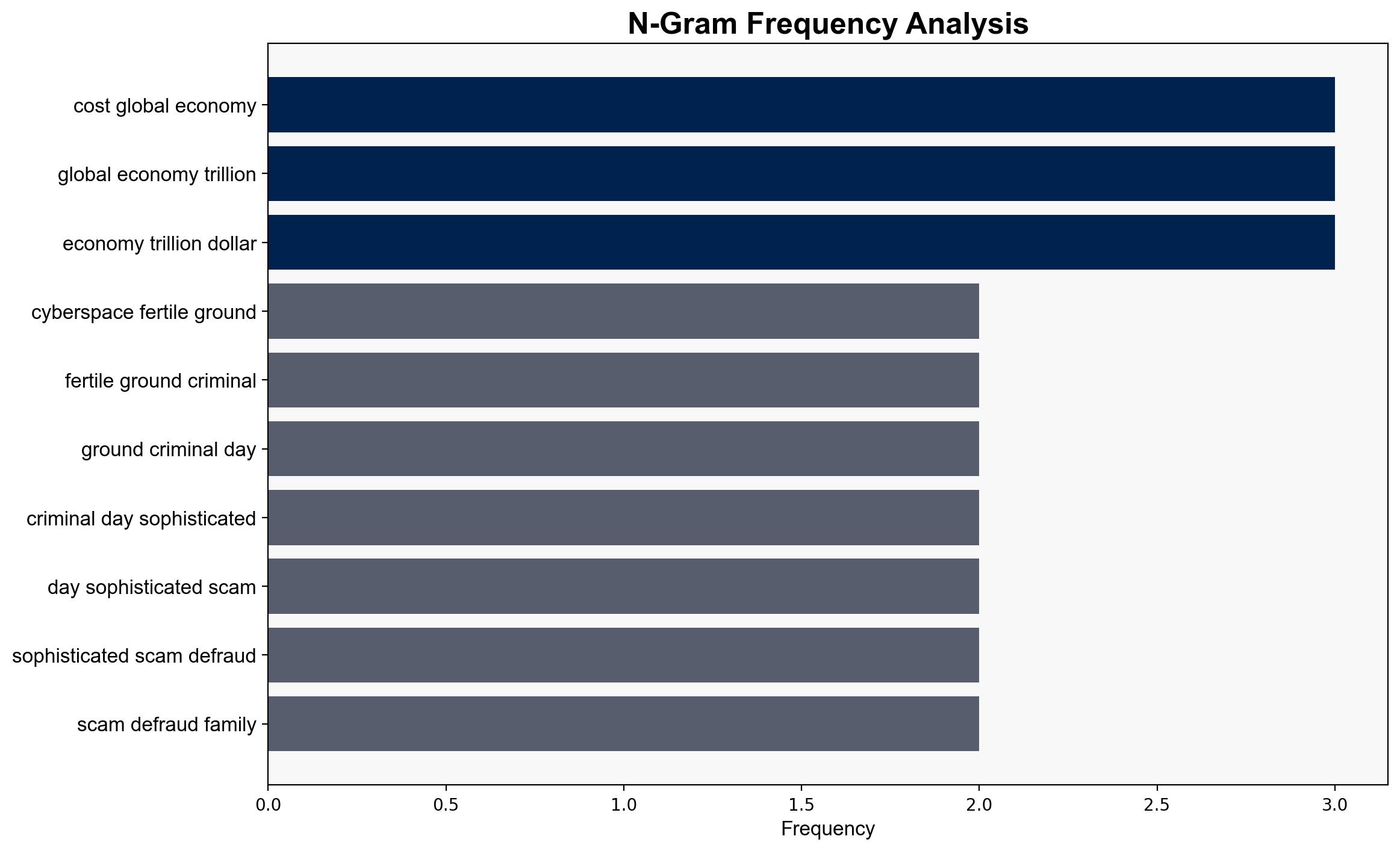UN cybercrime treaty to be signed in Hanoi to tackle global offences – The Times of India
Published on: 2025-10-25
Intelligence Report: UN Cybercrime Treaty to be Signed in Hanoi to Tackle Global Offences – The Times of India
1. BLUF (Bottom Line Up Front)
The UN cybercrime treaty, set to be signed in Hanoi, aims to enhance global cooperation against cybercrime but faces criticism for potential human rights abuses. The hypothesis that the treaty will improve international cybercrime defense is better supported. Confidence level: Moderate. Recommended action: Monitor implementation closely to ensure human rights safeguards are maintained.
2. Competing Hypotheses
1. **Hypothesis A**: The treaty will significantly enhance international cooperation and effectively reduce global cybercrime by providing a robust legal framework.
2. **Hypothesis B**: The treaty will lead to increased state surveillance and potential human rights abuses, outweighing its benefits in combating cybercrime.
Using the Analysis of Competing Hypotheses (ACH) method, Hypothesis A is more supported due to the treaty’s broad international backing and provisions for human rights protection. However, concerns from tech companies and human rights organizations lend some credence to Hypothesis B.
3. Key Assumptions and Red Flags
– **Assumptions**: The treaty’s provisions will be uniformly implemented and respected by all signatories. Human rights protections will be effectively enforced.
– **Red Flags**: Vague definitions of cybercrime could be exploited for political purposes. Criticism from major tech companies and human rights groups suggests potential for misuse.
– **Blind Spots**: The actual capacity and willingness of signatory nations to adhere to human rights provisions remain uncertain.
4. Implications and Strategic Risks
– **Economic**: Successful implementation could save the global economy billions by reducing cybercrime costs.
– **Cyber**: Enhanced cooperation may lead to improved cybersecurity infrastructure and response capabilities.
– **Geopolitical**: The treaty could strengthen multilateralism but may also exacerbate tensions if perceived as a tool for state surveillance.
– **Psychological**: Public trust in digital infrastructure may increase if the treaty is perceived as effective and fair.
5. Recommendations and Outlook
- Monitor signatory compliance with human rights provisions to mitigate potential abuses.
- Engage with tech companies and civil society to address concerns and improve treaty provisions.
- Scenario Projections:
- Best Case: Treaty leads to a significant reduction in global cybercrime and strengthens international cooperation.
- Worst Case: Treaty becomes a tool for state surveillance, leading to widespread human rights abuses.
- Most Likely: Treaty improves cybercrime cooperation with some instances of misuse mitigated by international oversight.
6. Key Individuals and Entities
– Antonio Guterres
– Luong Cuong
– Meta
– Microsoft
– Human Rights Watch
7. Thematic Tags
national security threats, cybersecurity, counter-terrorism, regional focus




